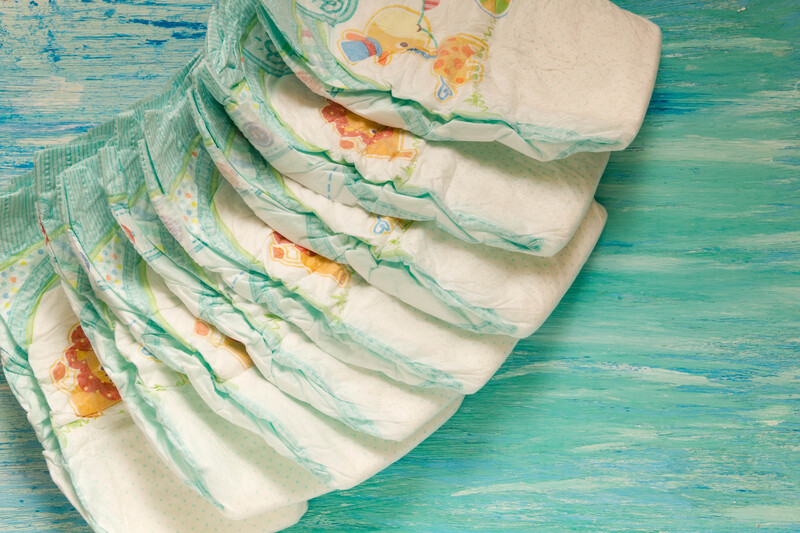Master Skip Hire Like a Pro with Essential Dos and Don'ts
When it comes to efficient waste management for renovation, construction, or decluttering projects, skip hire is often the go-to solution. But hiring a skip isn't as simple as picking the first size you see and dropping it on your driveway. Navigating regulations, optimising space, and ensuring safety are all key aspects of getting it right. In this comprehensive guide, you'll discover the crucial dos and don'ts of skip hire, expert tips, and insider tricks to make your next skip experience seamless and cost-effective.
What is Skip Hire and Why Do You Need It?
Skip hire is the process of renting a large open-topped waste container (commonly called a skip) for the temporary storage and removal of bulk waste. Whether you're undertaking a major home refurbishment, clearing out a garden, or handling commercial construction, hiring a skip saves you countless trips to the tip and centralises your waste in a contained, manageable way.
- Time-saving: One drop-off and pick-up, instead of multiple trips.
- Environmentally friendly: Professional recycling and disposal.
- Legal compliance: Ticking all the boxes for waste disposal regulations.

Skip Hire Essentials: Key Dos
To make the most of your skip hire, follow the essential dos below. Consider these your golden rules for a hassle-free, efficient, and compliant project.
Do Choose the Right Skip Size
Getting the correct skip size is vital. Too small and you'll be overfilling or hiring a second skip; too large, and you've wasted money and space.
- Mini/skips (2-3 yard): Perfect for small clear-outs or garden jobs.
- Builders'/Medium (6-8 yard): Ideal for kitchen/bathroom renovations or small construction jobs.
- Large/Maxi skips (12-16 yard): The best option for bulky or large-scale projects.
Pro tip: When in doubt, estimate your waste and consult with your skip provider--they can help assess your needs accurately.
Do Plan for Placement and Accessibility
Ensure the delivery vehicle can access your property safely. The skip should be placed on firm, level ground within easy reach, but without blocking driveways, roads, or emergency access.
- On-drive placement: Best if possible, as it avoids the need for permits.
- On-road placement: Requires a skip permit from your local council.
Important: Always check for overhead wires, low branches, or restricted spaces that could hinder delivery or pick-up.
Do Understand What Can and Cannot Go in the Skip
Strict regulations apply to what can be placed in skips for safety and environmental reasons. Before loading, confirm with your skip company about prohibited items.
- Allowed: Rubble, bricks, soil, wood, plastic, metals, furniture, non-electrical appliances.
- Banned: Asbestos, batteries, tyres, electrical equipment, paint, solvents, medical waste, gas cylinders.
Failure to comply can result in expensive fines or refused collection.
Do Load Waste Efficiently and Safely
Optimise space and maximise your skip hire value by:
- Breaking down bulky items: Smash up large furniture and flatten boxes.
- Placing heavy items first: Create a stable base before stacking lighter material.
- Level loading: Never overfill - keep waste within the rim of the skip.
Advice: Consider reserving space for waste generated at the end of your project, so you don't run out of room.
Do Get the Necessary Permits (if required)
If your skip must sit on a public road or verge, a local authority permit is mandatory. Your skip provider can often arrange this, but always check to avoid penalties.
- Apply early: Permits may take several days to process.
- Night safety: Skips on public land need safety lights and reflective markings overnight.
Skip Hire Mistakes to Avoid: The Top Don'ts
Understanding what not to do is equally important. Protect yourself, your wallet, and your neighbourhood's safety by steering clear of these common skip hire errors.
Don't Overfill or Overload Your Skip
It's illegal to transport overloaded skips. Items must not extend above the rim, and the skip must not be too heavy for safe lifting.
- Loaded skips won't be collected: Extra costs will apply to remove the surplus.
- Transportation hazards: Fines and accident risks are real possibilities.
Don't Dispose of Prohibited Materials
Hazardous waste endangers people and the environment. Never hide or obscure banned items in general waste--skip operators check loads before processing.
- Asbestos, fridges, TVs, solvents: Need specialised disposal--ask your council about dedicated services.
Don't Block Access or Violate Local Laws
Avoid placing skips where they block driveways, public paths, or emergency exits. Illegal placement may result in complaints, council removal, and fines.
- Check with neighbours: Warn them if access will be disrupted temporarily.
- Respect restrictions: Enforce parking and pedestrian rules in communal settings.
Don't Underestimate Your Waste Volume
Choosing a too-small skip can delay your project and increase costs. Always give yourself a buffer, especially for unpredictable renovation or garden jobs.
- It's often cheaper to go up a size: The incremental cost is usually less than hiring a second skip.
Don't Ignore Safety Precautions
Skips can be hazardous--especially around children or pets. Secure the area, never allow children to play in or around skips, and avoid sharp or protruding objects sticking out of the load.
- Cover the skip at night: Use a tarpaulin to deter unauthorized use or waste dumping.
Expert Skip Hire Tips for Maximum Efficiency
Once you've got the essentials down, use these pro tricks to master your next skip hire:
1. Book in Advance
Prime skip sizes often book out--especially during peak home improvement seasons. Reserve yours early to secure your preferred delivery slot.
2. Plan Your Waste Flow
Think ahead: sort your waste into piles before the skip arrives. Easy-to-load waste saves time and space, and keeps your project on track.
3. Layer and Compact
Don't just toss items in. Place heavier, denser items at the bottom. Fill gaps with smaller items or soft waste. Use garden waste or rubble as filler between larger objects for maximum compaction.
4. Communicate with Your Provider
Transparency is key. Discuss the type and amount of waste, site access, and permit needs upfront to avoid misunderstandings or extra fees later.
5. Be Smart About Skip Placement
If you need access to your garage, driveway, or side path, plan skip positioning carefully. Consider potential weather issues--wet grass or soft ground can become inaccessible to collection vehicles.
Answers to the Most Common Skip Hire Questions
- How long can I keep a skip? Most companies offer a standard hire period (usually 1-2 weeks)--extensions are possible with prior notice.
- Do I need to be present for delivery? Not always, but to ensure correct placement, it's recommended, especially if access is tight.
- What happens to my waste? Reputable providers sort and recycle as much as 90% of skip waste, reducing environmental impact.
- Can I move the skip after delivery? No - skips must remain where placed due to weight and safety concerns. Always finalise position before delivery.
- What happens if my skip gets filled by fly tippers? You're usually responsible--cover your skip when not in use to deter unauthorised dumping.

Environmental Responsibility in Modern Skip Hire
Being green is easier than ever. Choose a skip service that maximises recycling, offers separate disposal options for electronics or hazardous waste, and minimises landfill contributions.
Ways to be environmentally responsible include:
- Sort waste before disposal: Keep recyclables separate if possible.
- Request separate skips: If producing a lot of one waste type, like concrete, ask for dedicated skips--some companies offer discounts for pure loads.
- Ask about your provider's recycling stats: Support businesses that actively work towards landfill reduction.
Final Thoughts: Become a Skip Hire Pro
With a little planning, some smart tips, and an understanding of the essential dos and don'ts of hiring a skip, you can turn a logistical headache into a swift, cost-effective, and environmentally-friendly solution. Remember to:
- Size your skip correctly
- Follow local regulations and secure permits as needed
- Know what you can and cannot dispose of
- Load your skip safely and efficiently
- Partner with a reputable, eco-conscious skip hire company
If you follow these tips, you'll not only master skip hire--you'll save time, money, and contribute to a cleaner community too. For further guidance, always consult your chosen provider. Get rid of waste the smart way: hire a skip like a pro!